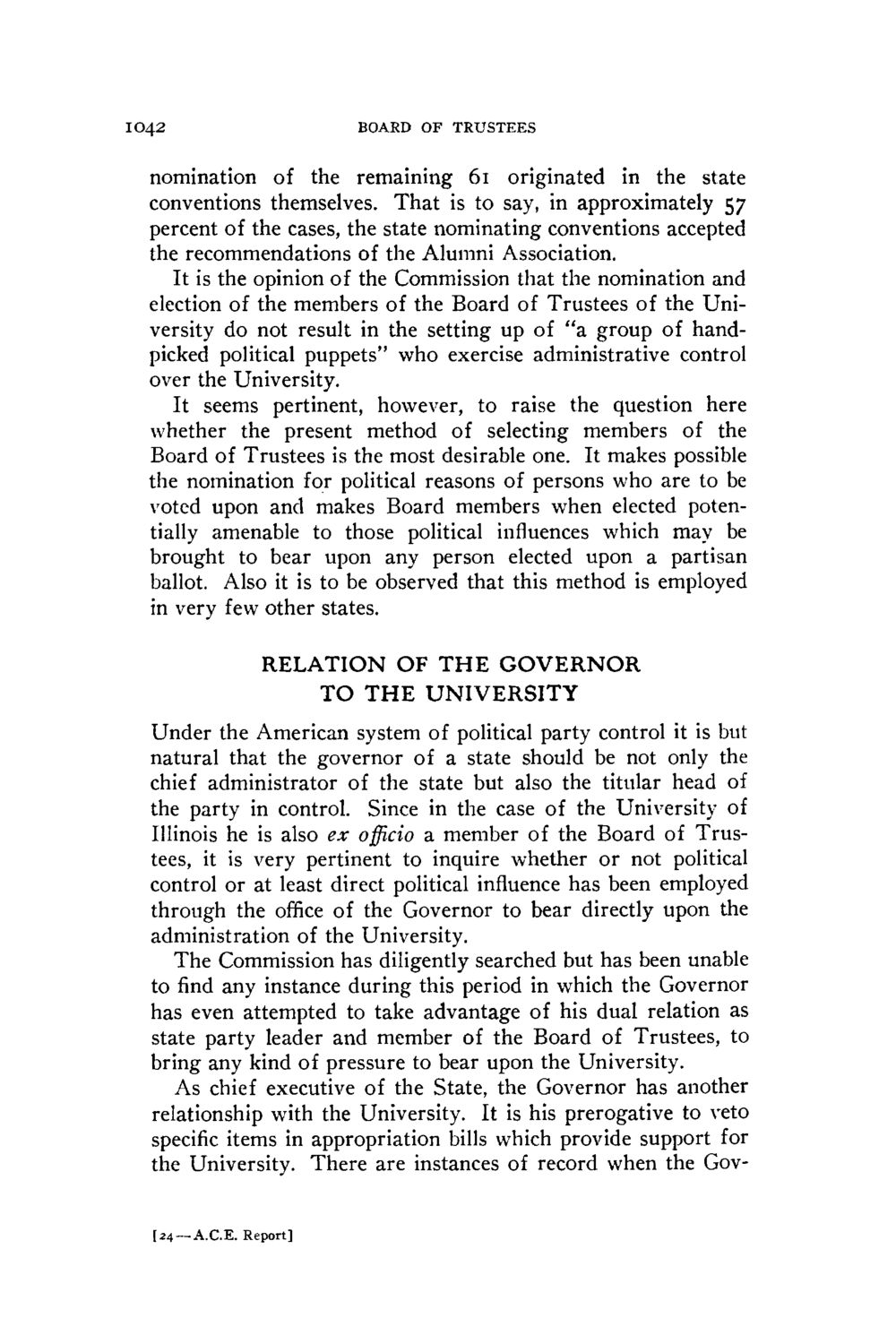| |
| |
Caption: Board of Trustees Minutes - 1944
This is a reduced-resolution page image for fast online browsing.

EXTRACTED TEXT FROM PAGE:
1042 BOARD OF TRUSTEES nomination of the remaining 61 originated in the state conventions themselves. That is to say, in approximately 57 percent of the cases, the state nominating conventions accepted the recommendations of the Alumni Association. It is the opinion of the Commission that the nomination and election of the members of the Board of Trustees of the University do not result in the setting up of "a group of handpicked political puppets" who exercise administrative control over the University. It seems pertinent, however, to raise the question here whether the present method of selecting members of the Board of Trustees is the most desirable one. It makes possible the nomination for political reasons of persons who are to be voted upon and makes Board members when elected potentially amenable to those political influences which may be brought to bear upon any person elected upon a partisan ballot. Also it is to be observed that this method is employed in very few other states. RELATION OF THE GOVERNOR TO THE UNIVERSITY Under the American system of political party control it is but natural that the governor of a state should be not only the chief administrator of the state but also the titular head of the party in control. Since in the case of the University of Illinois he is also ex officio a member of the Board of Trustees, it is very pertinent to inquire whether or not political control or at least direct political influence has been employed through the office of the Governor to bear directly upon the administration of the University. The Commission has diligently searched but has been unable to find any instance during this period in which the Governor has even attempted to take advantage of his dual relation as state party leader and member of the Board of Trustees, to bring any kind of pressure to bear upon the University. As chief executive of the State, the Governor has another relationship with the University. It is his prerogative to veto specific items in appropriation bills which provide support for the University. There are instances of record when the Gov[24 — A.C.E. Report]
| |